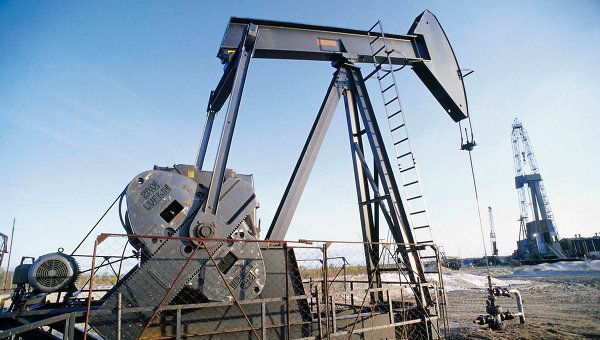By Saule Tasboulatova
 Forecasts of oil production volumes in Kazakhstan fall every year – with oil production suspension at Kashagan, as well as production decrease at some of the "mature" fields.
Forecasts of oil production volumes in Kazakhstan fall every year – with oil production suspension at Kashagan, as well as production decrease at some of the "mature" fields.
Even at TCO, which traditionally ‘sets the pace’ of production of “black gold” in the country, indicators are decreasing. In the first quarter the company produced 6,8 million tons of oil (compared with the first quarter of 2013 - 7 million).
326 thousand tons of liquefied gas and 1,7 billion cubic meter of dry gas has been sold (vs. figures for the first quarter of last year - 340 thousand tons and 1,8 billion cubes).
The oil production results for the quarter for he whole of Kazakhstan and forecasts for 2014, were commented by Artem Ustimenko (on a photo), the senior analyst of Agency on research of investments’ profitability (AIRI):
 Artem Ustimenko- Under the conditions of forced shutdown of the North Caspian project and noted reduction of production on a number of old fields, in 2014-15, Kazakhstan will be able to extract no more than 82,4 - 82,7 million tons of oil and condensate annually – providing there are no technological, natural and other risks that could impact operational performance of individual companies. It is expected that TCO production in 2014 will amount to about 26,2 million tons, which is lower than last year's indicator (27,1 million tons) in view of carrying out planned repairs and some other factors.
Artem Ustimenko- Under the conditions of forced shutdown of the North Caspian project and noted reduction of production on a number of old fields, in 2014-15, Kazakhstan will be able to extract no more than 82,4 - 82,7 million tons of oil and condensate annually – providing there are no technological, natural and other risks that could impact operational performance of individual companies. It is expected that TCO production in 2014 will amount to about 26,2 million tons, which is lower than last year's indicator (27,1 million tons) in view of carrying out planned repairs and some other factors.
Thus, oil and condensate production volumes in Kazakhstan following the results of the first quarter lag behind the initial plan - 20,19 million tons against 20,6 million. In particular, Tengizchevroil produced 6,8 million tons, Karachaganak Petroleum Operating - 3 million, KazMunayGas, EP - 1,99 million, MangistauMunayGaz - 1,53 million, CNPC-AktobeMunayGas - 1,28 million.
The production suspension at the North Caspian project due to technological problems means that in 2014-15years the loss will amount to 20 million tons of oil, compared to initial production forecasts, and in current year the loss will amount up to 8 million tons.
However, in case the production at Kashagan is renewed on newly stipulated deadlines, i.e. in 2016, then the production of liquid hydrocarbons for the country as a whole, by the year 2020 could increase up to 98-100 million tons annually. Also, by the year 2020, TCO’s Future Growth Project is expected to be completed that should allow to increase the production capacities of this company by 12 million tons of oil per year.
According to Ustimenko, the share of Kazakhstan in the world's hydrocarbon reserves is about 2%. The country takes the 16th place among the main global producers and the 2nd place - among the former Soviet Union Republics (after Russia).
 В Атырау -10
В Атырау -10